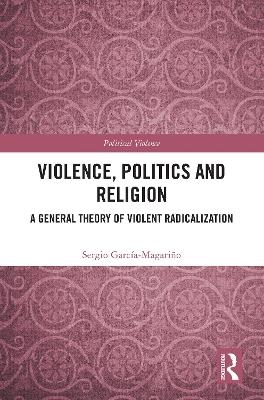
Violence, Politics and Religion
Routledge (Verlag)
978-1-032-55793-9 (ISBN)
The first and fundamental objective of the book is to provide an explanatory framework to understand phenomena related to violent radicalization, deradicalization, the prevention of radicalization and to political violence; in particular, that inspired by religion. The second objective follows from the first. Understanding violent radicalization of religious inspiration implies delving into two key concepts: violent radicalization and religion. This second objective is indeed elusive, since, on the one hand, many liberal democracies have undergone processes of secularization or, at least, have lost interest in examining religion in public debates. Therefore, rigorously exploring social problems where religion seems to be involved, in one way or another, is complicated. Moreover, the notion of violent radicalization, in turn, is highly contested and confused with other ideas, such as polarization, extremism, terrorism or nonviolent radicalization. Finally, the book aims to bring theory into dialogue with empirical phenomena, and to test it against concrete cases related to violent radicalization and its prevention, on the one hand, and religion, on the other. The book’s originality comes from both its innovative, methodological approach and its breadth, with cases from several countries (Spain, the United States, Ireland, India, Israel, Russia and Colombia) and different ideological groups (revolutionary communists, nationalist movements, Jihadist groups, white and black supremacists).
This book will be of much interest to students of terrorism and political violence, radicalization, sociology and international relations in general.
Sergio García-Magariño holds a PhD in sociology and is a lecturer (associate professor) at the Public University of Navarre, Spain. He is the author or editor of over 80 papers, books and other academic publications.
Introduction Part I. Theoretical And Methodological Foundations 1. The Importance and Challenges in the Study of Religion in Modern Society 2. Factors Related to Violent Radicalization: The Macro, the Meso and the Micro 3. Towards An Empirically-based Theory of the Nature of Violent Radicalization: Moral Structure, Community and Jihadism Part II. Case Studies 4. Comparative Analysis of Different Types of Violent Radicalization: From ETA, the IRA and the FARC, to the American Extreme Right 5. The Pseudo-Religious Narrative of Silicon Valley Part III. Prevention and Deradicalization 6. The Role of Individual and Territorial Indicators: The Strange Connection Between the Socioeconomic Structure of Neighborhoods and Terrorism 7. Prevention Programs and Deradicalization: The Turn Towards Resilience 8. Theory in Action: Programs on the Notions of "Moral Structure" and "Community" Epilogue and Conclusions
| Erscheinungsdatum | 21.04.2024 |
|---|---|
| Reihe/Serie | Political Violence |
| Zusatzinfo | 2 Tables, black and white; 16 Line drawings, black and white; 1 Halftones, black and white; 17 Illustrations, black and white |
| Verlagsort | London |
| Sprache | englisch |
| Maße | 156 x 234 mm |
| Gewicht | 476 g |
| Themenwelt | Geisteswissenschaften ► Philosophie |
| Sozialwissenschaften ► Politik / Verwaltung ► Europäische / Internationale Politik | |
| ISBN-10 | 1-032-55793-1 / 1032557931 |
| ISBN-13 | 978-1-032-55793-9 / 9781032557939 |
| Zustand | Neuware |
| Haben Sie eine Frage zum Produkt? |
aus dem Bereich


